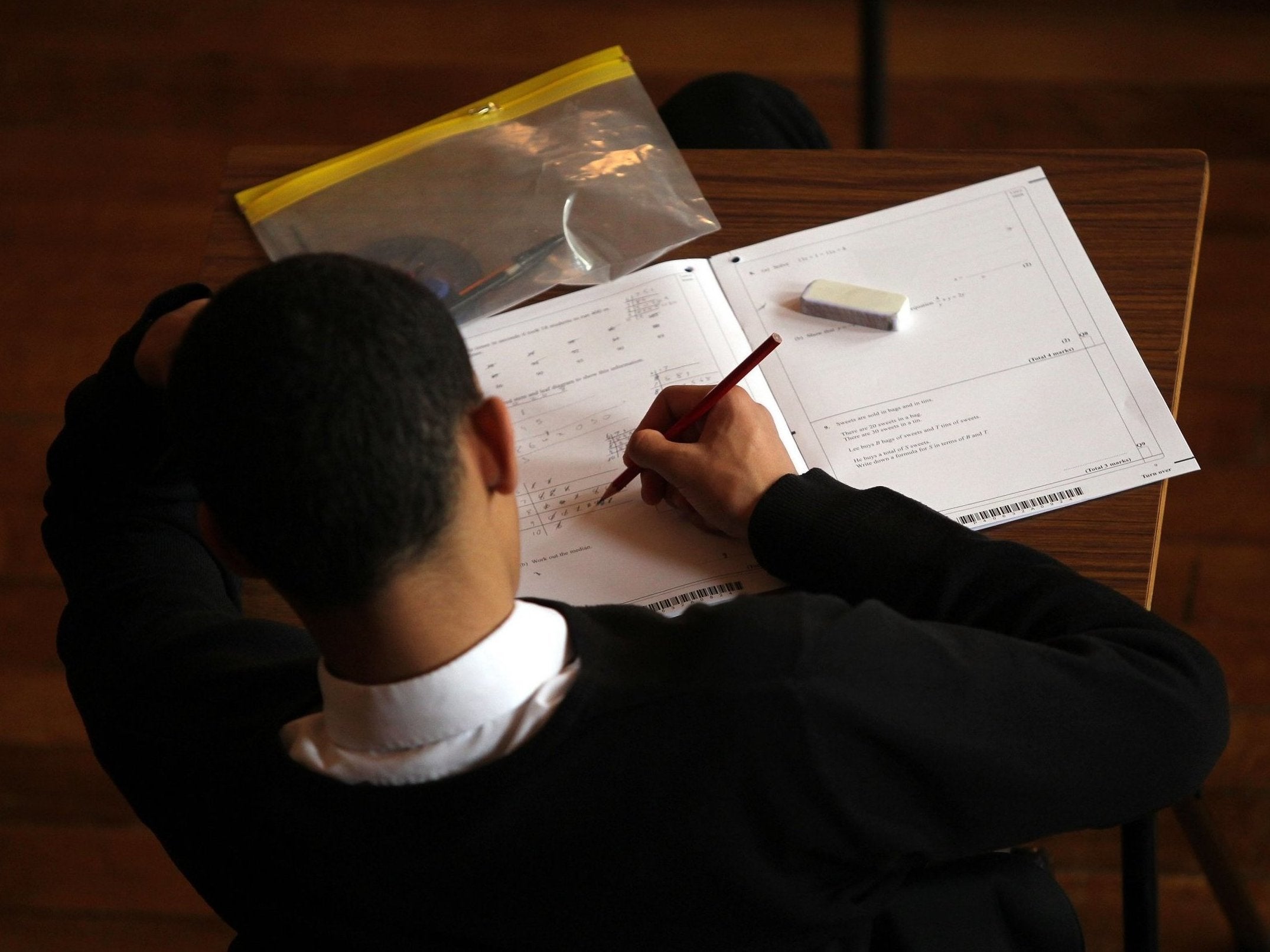UK climbs global education rankings but British teenagers among least satisfied with lives, study finds
‘It is clear that many young people feel under great pressure in a society in which the stakes often seem very high to them in terms of achieving their goals’

Your support helps us to tell the story
From reproductive rights to climate change to Big Tech, The Independent is on the ground when the story is developing. Whether it's investigating the financials of Elon Musk's pro-Trump PAC or producing our latest documentary, 'The A Word', which shines a light on the American women fighting for reproductive rights, we know how important it is to parse out the facts from the messaging.
At such a critical moment in US history, we need reporters on the ground. Your donation allows us to keep sending journalists to speak to both sides of the story.
The Independent is trusted by Americans across the entire political spectrum. And unlike many other quality news outlets, we choose not to lock Americans out of our reporting and analysis with paywalls. We believe quality journalism should be available to everyone, paid for by those who can afford it.
Your support makes all the difference.The UK has climbed up the international school league tables for maths, science and reading – but British teenagers are among the least satisfied with their lives, a major global study has found.
Improvements to the UK’s academic performance in the Programme for International Student Assessment (Pisa) tests have been “tarnished” by wellbeing data, unions have said.
The tests, taken by 15-year-olds in 79 countries and regions, show the UK has improved its rankings on three years ago and British pupils performed significantly better in maths in 2018 than in 2015.
But the Organisation for Economic Cooperation and Development (OECD) study found just 53 per cent of UK students are satisfied with their lives, compared to 67 per cent across the OECD countries.
Just over one in three (35 per cent) of students from the UK described themselves as “always happy”, which is below the OECD average of 41 per cent, the report reveals.
Overall, the global report ranks the UK as 14th for reading, up from 22nd in the previous tests in 2015. The UK has also risen from 27th to 18th in maths and from 15th to 14th in science.
But Andreas Schleicher, OECD education and skills director, has said that it will take “a long time” for the UK to catch up with top-performing countries like China, Estonia and Finland.
On the figures, Paul Whiteman, general secretary of the National Association of Headteachers, said: “The impressive statistics around maths are tarnished by the worryingly high percentages of miserable and worried pupils.”
Geoff Barton, general secretary of the Association of School and College Leaders, added that the data showing that fewer students in the UK are satisfied with their lives was “worrying”.
He said: “It is clear that many young people feel under great pressure in a society in which the stakes often seem very high to them in terms of achieving their goals.”
Kevin Courtney, joint general secretary of the National Education Union, said: “Pisa finds a clear link between successful education systems and pupils’ sense of belonging and life satisfaction.
“The finding that pupils in England are less likely to agree that their life has a clear meaning compared with their counterparts globally, and that two-thirds described themselves as sometimes or always feeling worried, should be deeply concerning.”
He added: “In the context of austerity, growing rates of child poverty and homelessness, low pay and job insecurity, a generation of young people in England are growing up believing that their future is bleak.”
Carole Willis, chief executive of the National Foundation for Educational Research, said: “Pupils in England have continued to perform well in reading and science and have made significant improvement in maths.
“What requires further analysis and consideration is pupils’ perception of their wellbeing.”
Additional reporting by Press Association
Join our commenting forum
Join thought-provoking conversations, follow other Independent readers and see their replies
Comments